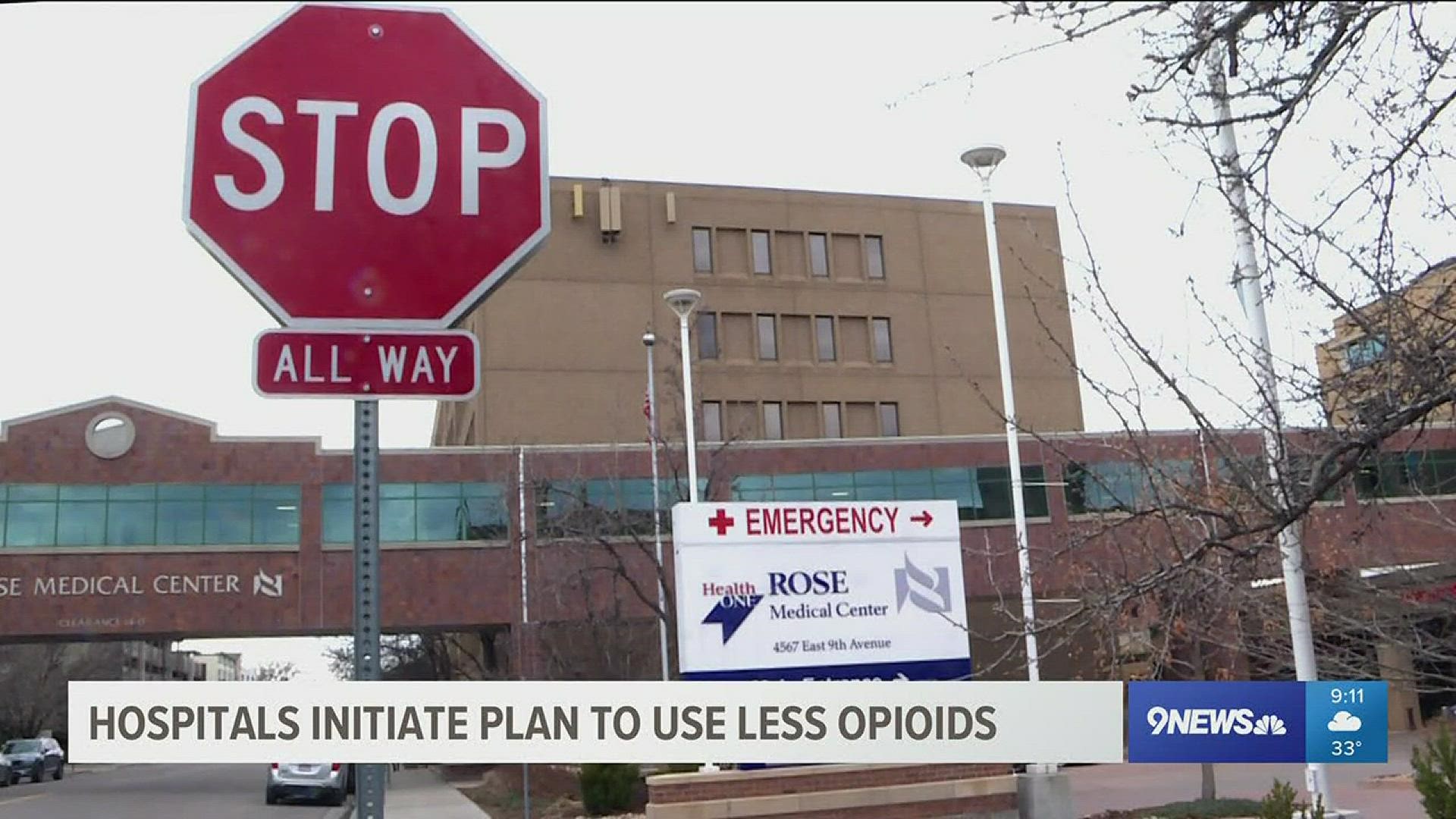DENVER — Two years ago, the Colorado Hospital Association started a pilot program to cut down on opioid prescriptions at the emergency room at 10 hospitals across the state.
Cara Welch, director of communications for the association, said the movement has taken off across the state.
"We targeted that area because we know that sometimes a person's first exposure to an opioid is in the emergency department," Welch said. "Many people go there to be treated for pain whether it's a migraine headache or a broken bone."
Welch said doctors laid out treatment pathways to use alternative treatments rather than regularly giving out potentially addictive opioids.
"They were at least going to try out alternatives first to see if they can treat people's pain in an effective way," Welch said. "If not, they could always go back to that opioid."
Welch said the plan worked well. The initial goal was to reduce opioid prescriptions by 15 percent.
"The result was they reduced by 36 percent, so more than double our goal," Welch said.
Now, the plan will be used in every emergency room in the state. In addition, starting this year is a new project called The Colorado CURE. CURE stands for "Clinicians United to Resolve the Epidemic." This will expand similar protocols in cutting back on opioid prescriptions in other areas of care like surgery, anesthesiology, and even dentistry.
"This was a culture change that the doctors and the nurses felt empowered because they had more tools in their tool kit to treat people's pain and because they had recognized the role that providers and hospitals had in creating the opioid epidemic, they wanted to do something to really make an impact," Welch said.
She said Colorado is the first state in the country to do this on such a large scale.
"Limiting that initial exposure is definitely going to be a key piece of solving this issue," Welch said.
SUGGESTED VIDEOS | Local stories from 9NEWS

